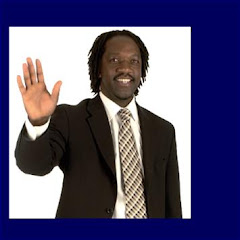The young girl clings to her deaf mother's hip in a crowded bowling alley, watching as a deaf man with hooks for hands talks using sign language, scraping the curved metal claws together as if demonstrating cooking knives writes Elaine Lies for Reuters (05/03/12).
The image opens "Burn Down the Ground," a memoir by debut U.S. author Kambri Crews about growing up as the hearing child of two deaf parents, a life that she credits with giving her both an aptitude and love of storytelling that have helped make her the successful comedian she is today.
"The Deaf community is very much a story-telling community. It's hard to translate into print how a deaf person telling a story is, but it's watching poetry in motion. Because you're fully engaged," she said in a telephone interview.
"When my husband first started dating me, he thought 'she can't be this into me,' but it's because I'm from a Deaf community where you maintain eye contact and you turn your body into the storytelling. There's a lot of hugging and touching and pushing and pulling, it's a very physical community."
For Kambri, now 40, it was a nurturing community as well, with the sign language that she almost considers her native tongue helping her learn to express herself at an unusually early age, while helping her parents cope with the hearing world taught her independence and self-reliance.
But her family was at times so short on funds that they were once forced to live in a shed on their rural Texas property, and her charismatic father was prone to rages that prompted him to attack her mother when Kambri was a teen and eventually landed him in prison for 20 years after he stabbed his girlfriend.
Much of the book is an exploration of Kambri's complicated relationship with him, how the adoration of her early years was transformed to anger and fear, and finally a saddened, but accepting, love.
His charm is on display early on, where he grins and holds court amid deaf friends, telling an obscene joke in sign language before introducing Kambri proudly to the group and giving her five dollars for a treat.
But the isolation of his deafness in an era where he was simply dropped off at a school for the deaf without explanation by his hearing family, and the texting and email of today didn't exist, led to frustration that fed rages and violence.
"The confusion, the feeling of abandonment. The longing to be like the rest of his family, that definitely created some issues," Crews said.
"But if he had been born in this decade, besides text messaging -- oh my goodness, the technology... The technology that exists today would serve him very well."
After a terrifying attempt on her mother's life, the teenage Kambri distances herself from her father and, through a brief, early marriage and job with a lawyer, eventually builds a life as owner of a production company and a comedian, developing a life-long love of theater and performance.
But gradually, through the correspondence forced on them by his deafness, the two rebuild a relationship eventually even strong enough to survive his imprisonment, which goes on today.
"I'd get these letters from my dad, and I realized that we're extraordinarily alike. We're both storytellers, we like being the center of attention, on stage," she said. "It made me understand him a lot more."
Asked if she now feels she lost anything by growing up with deaf parents, she says she didn't -- at least, not directly.
"I would love for my dad to be able to hear music," she said. "I wish he could hear me talk and tell stories and see how much like him I am in some ways. And be able to share music with him, because he's such an avid Elvis Presley fan, and he's never heard a single note."
Monday, 5 March 2012
Subscribe to:
Post Comments (Atom)






No comments:
Post a Comment